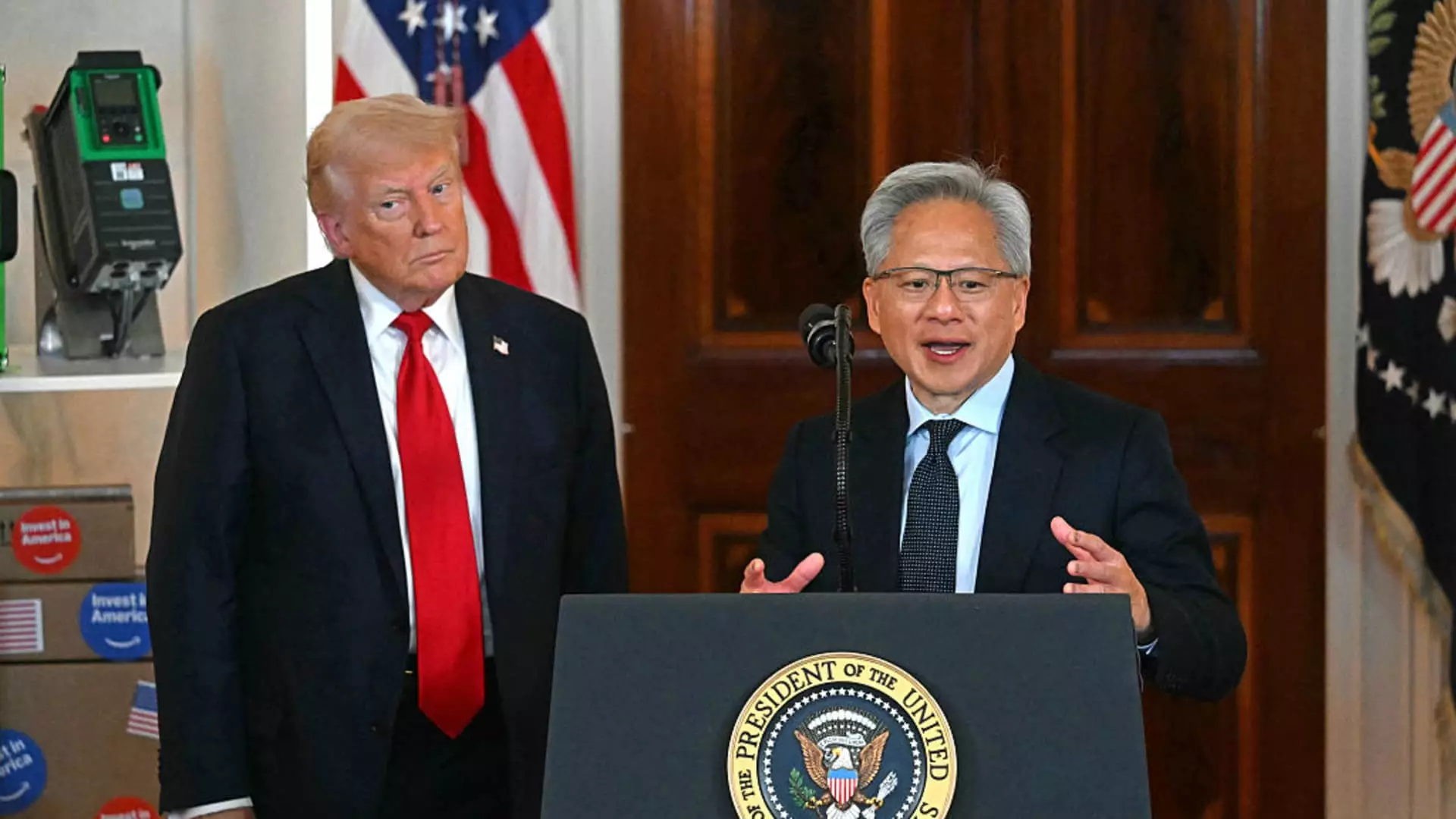In recent discussions surrounding U.S. foreign policy and national security, a disturbing narrative is emerging—one that underscores how decisions made at the highest levels can inadvertently undermine decades of American innovation dominance. The controversy over allowing Nvidia and AMD to sell advanced AI chips to China exemplifies a broader trend of strategic missteps and misplaced priorities. While trade and commerce are vital, they should not come at the expense of critical technological advantages that safeguard national security. Instead, this situation reveals a dangerous willingness to commodify core assets that underpin U.S. military and economic leadership. It’s as if the government has become complacent in protecting its technological sovereignty, risking a future where American ingenuity is a subordinate player rather than the global standard-bearer.
The fundamental issue here is the stark choice between economic benefit and technological security. The Trump administration’s decision to permit sales of cutting-edge chips—requiring only a 15% revenue cut in exchange—raises alarm bells about American competitive integrity. Why are we outsourcing our best AI hardware to a geopolitical rival, especially China, which has long been viewed as a primary threat to U.S. dominance? Such policies compromise our ability to control the narrative and pace of AI development, positioning China as a future powerhouse in areas integral to both economic prosperity and military strength. The very essence of U.S. advantage—our unmatched innovation ecosystem—is at risk of being diluted if we continue down this path of timid concessions.
National Security Risks: An Overlooked Cost
Many skeptics dismiss concerns by insisting that the chips in question—Nvidia’s H20 and AMD’s MI308—do not directly bolster China’s military capabilities. Yet, this perspective overlooks the broader strategic significance of advanced AI hardware. These chips are foundational to the development of sophisticated AI systems that could enhance China’s military, intelligence, and surveillance operations. The argument that these sales pose no threat becomes increasingly tenuous when one considers the interconnected nature of technological advancements. A chip is not just a piece of hardware; it is a conduit through which innovation flows, and in the wrong hands, that flow can empower adversaries to challenge U.S. dominance on multiple fronts.
Furthermore, selling such critical technology to China risks igniting a destructive feedback loop where innovation is weaponized against American interests. The image of policymakers prioritizing short-term revenue over long-term security is not only troubling but also indicative of a shortsighted approach that jeopardizes future generations. Allowing AI chips to flow into China’s military and economic machinery is akin to gifting a rival the tools needed to surpass us—an act that could set back U.S. technological leadership by decades.
The Myth of Economic Benefits Over Security
Proponents of these sales argue that they promote economic growth, foster international cooperation, and bolster American companies’ global competitiveness. While these are valid arguments, they often mask a dangerous complacency about the true costs involved. The narrative that fiscal gains justify security risks is fundamentally flawed. When America sacrifices its technological edge, the economic advantages are short-lived and ultimately self-defeating. A leader in innovation creates its own economic opportunities; ceding that lead translates into diminished strategic influence and difficult, costly recoveries.
The recent response from the administration, dismissing critics and shifting blame, further paints a picture of government officials prioritizing political expediency over national security. This attitude is perilous—treating our technological prowess as interchangeable commodities rather than national treasures. There is a pressing need for a paradigm shift, one that recognizes innovation as the backbone of national resilience. Decisions must be rooted in safeguarding this sovereignty, not in chasing fleeting economic windfalls.
Strategic Courage Over Political Convenience
The core challenge is political will. Policymakers must reject the false dichotomy that pits economic interests against security imperatives. Instead, they should champion policies that reinforce U.S. leadership, even if it means short-term sacrifices. Protecting advanced AI chips is not merely about keeping jobs or boosting corporate profits—it is about maintaining a strategic advantage that ensures America remains at the forefront of global innovation and military readiness.
The current situation suggests a dire need for recalibrating our approach to technology exports. Historically, the U.S. has succeeded in maintaining its technological edge precisely because of its refusal to compromise on sensitive innovations. This resilience must be rekindled through clear, unwavering policies that prioritize national security. Otherwise, the U.S. risks awakening in a world where its technological leadership is no longer undisputed, and where adversaries can leverage Chinese advancements to challenge not just our economy, but our sovereignty.
The debate over AI chips encapsulates a larger truth—protecting America’s future requires courage, foresight, and strategic resolve. It is time for policymakers to realize that innovation is a national asset worth defending fiercely, not a commodity to be sold in hopes of fleeting gains. Only then can the United States ensure that its leadership in technology remains unassailable in the years to come.

